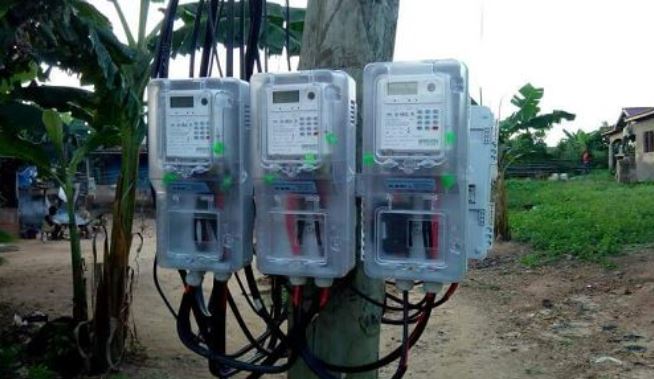Losses in power distribution could rise exponentially from the estimated GH¢1.3billion a year if urgent steps are not taken to address challenges with the Self-Help Electrification Programme (SHEP) – a community-driven electrification mechanism introduced in 1989, an Africa Centre for Energy Policy (ACEP) report has warned.
The report, ‘The prevalence of illegal meters in the national grid system’, said political interference and abuse of SHEP meters – particularly outside designated locations – is contributing significantly to illegal connections to the grid and consequently the significant losses being recorded in the power sector, since these meters have not been processed to enable standardised readings and billing.
In addition to this, it said their consumption is not captured in the grid system – leading to huge commercial losses for the distributors.
“The implication of these meters’ existence is the significant financial losses to the power distributors. Distribution losses are estimated to cost about GH¢1.3billion annually, with an average cost of about GHp 15/kWh to the consumer. The risk of this cost increasing is very high when the illegal meter connection problem is left unattended,” it said.
In all, the study identified 3,667 illegally connected SHEP meters from selected urban and suburban residential areas; a situation ACEP described as a clear abuse of the SHEP initiative.
Over 70 percent of these meters, the report revealed, had non-functioning LCD displays; hence consumption data could not be accessed. And even if the power distributor were able to locate these meters, it would be unable to estimate how much power was consumed for retrospective billing – while the remaining meters identified show very high consumption, with some as high as 28,320kWh.
It added that revenue losses from these illegally connected meters further worsen the already-high commercial losses being experienced in the power sector, which has manifested in the financial distress the sector is currently faced with.
Meanwhile, in a revenue protection exercise conducted by the Electricity Company of Ghana (ECG) between December 2019 and January 2020, a total of 10,142 illegal SHEP metres were recovered in the Ashanti Region.
The study also revealed a disturbing phenomenon of what is called ‘abortion meters’ – meters that have been deliberately tampered with to disallow communication with the power distributors – all in a bid to erase and prevent records of consumption, especially when it is very high.
“Agents of the power distributors, including subcontractors and service providers who distribute meters among others, actively facilitate and advise consumers on illegal connections and meter-tampering for their private gain.
“It was also revealed that politicians get the SHEP meters from the Ministry of Energy to share and connect households to the grid for electoral gain without the active involvement of power distributors,” the report stated.
Recommendations
The study raises the need for quick reforms in addressing the challenge of illegally connected SHEP meters and the wider problem of illegal connections and non-payment for power consumed.
Among other things, ACEP wants the Electricity Company of Ghana (ECG) to immediately take steps to regularise all SHEP meters and eliminate the damaged ones; and to adopt a whistle-blower mechanism to support detection of illegal connections in the system.
It also urged ECG to overhaul its monitoring system to ensure that it is able to account for consumption in the system. “Again, power distributors should monitor their staff and subcontractors in charge of installing and reading meters to identify the recalcitrant ones who are engaged in illegal connection for sanctions.
“The Ministry of Energy should ensure that installation of the SHEP meters is done with the active participation of power distribution companies to ensure they are captured into their system for billing,” ACEP concluded.
About SHEP
SHEP was instituted to drive electricity access across the country for economic growth and development, and contributed significantly to increasing the electricity access rate from about 23 percent in 1990 to 85.17 percent in 2021. Under the SHEP, communities are assisted by government to advance their connection to the national electricity grid ahead of their scheduled connection time.
It requires communities to be within 20km of an existing 33kV or 11kV supply, be prepared to purchase all Low Voltage (LV) poles to connected, and have a minimum number of houses wired-up and ready to receive electricity.
“Although the SHEP programme has significantly contributed to the increase in electricity access rate in Ghana, the inability of communities to meet the minimum requirements has resulted in SHEP meters finding their way into undesignated locations for illegal connection. The evidence suggests that this problem is widespread in the country, and is brazenly facilitated by agents of the power distributors,” ACEP lamented.










